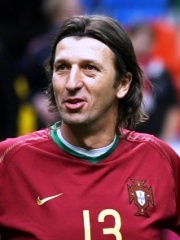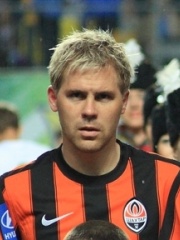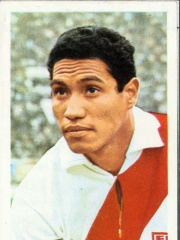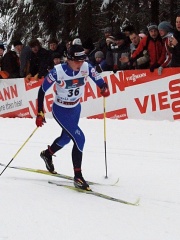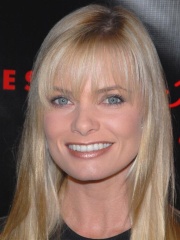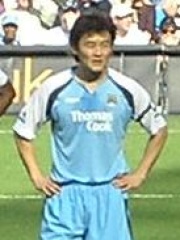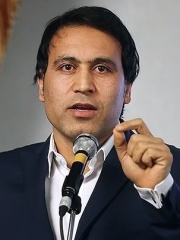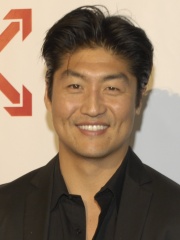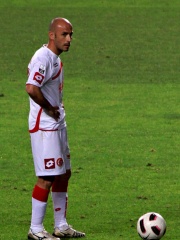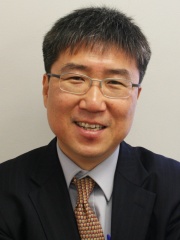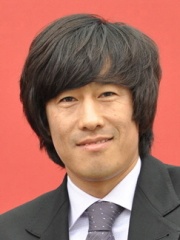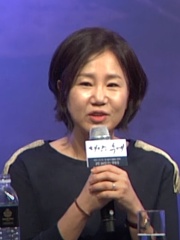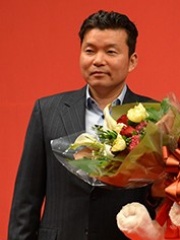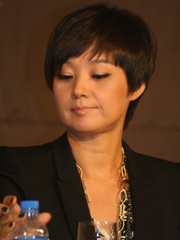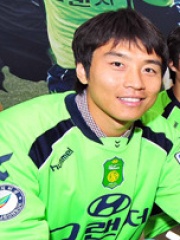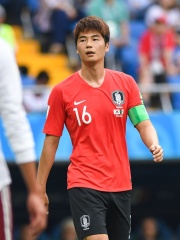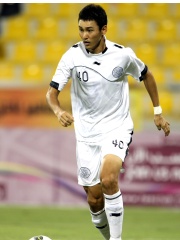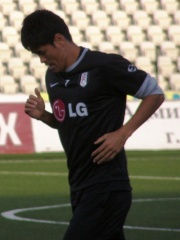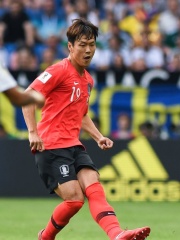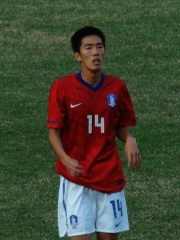Soccer Player
Kim Nam-il
1977 - Today
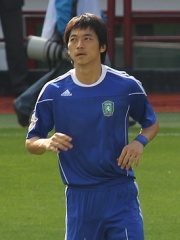
 Kim Nam-il
Kim Nam-il
Kim Nam-il (Korean: 김남일; Hanja: 金南一; born 1 May 1977) is a South Korean football manager and former player who played as defensive midfielder. Read more on Wikipedia
His biography is available in 32 different languages on Wikipedia. Kim Nam-il is the 5,877th most popular soccer player (up from 6,954th in 2024), the 477th most popular biography from South Korea (up from 558th in 2019) and the 28th most popular South Korean Soccer Player.
Memorability Metrics
Page views of Kim Nam-il by language
Among Soccer Players
Among soccer players, Kim Nam-il ranks 5,877 out of 21,273. Before him are Dimas, Masahiro Iwata, Primož Gliha, Tomáš Hübschman, Jaroslav Netolička, and Pedro González. After him are Roman Wójcicki, Yosuke Matsumoto, Hiroyuki Sawada, Francesc Arnau, Alberto Quintano, and Yuri Falin.
Most Popular Soccer Players in Wikipedia
Go to all RankingsDimas
1969 - Present
HPI: 51.15
Rank: 5,877
Masahiro Iwata
1981 - Present
HPI: 51.15
Rank: 5,878
Primož Gliha
1967 - Present
HPI: 51.15
Rank: 5,879
Tomáš Hübschman
1981 - Present
HPI: 51.15
Rank: 5,880
Jaroslav Netolička
1954 - Present
HPI: 51.15
Rank: 5,881
Pedro González
1943 - Present
HPI: 51.15
Rank: 5,882
Kim Nam-il
1977 - Present
HPI: 51.15
Rank: 5,883
Roman Wójcicki
1958 - Present
HPI: 51.15
Rank: 5,884
Yosuke Matsumoto
1990 - Present
HPI: 51.15
Rank: 5,885
Hiroyuki Sawada
1974 - Present
HPI: 51.14
Rank: 5,886
Francesc Arnau
1975 - 2021
HPI: 51.14
Rank: 5,887
Alberto Quintano
1946 - Present
HPI: 51.14
Rank: 5,888
Yuri Falin
1937 - 2003
HPI: 51.14
Rank: 5,889
Contemporaries
Among people born in 1977, Kim Nam-il ranks 264. Before him are Ryan Dunn, Kristina Šmigun-Vähi, Katherine Moennig, Jaime Pressly, Habib Beye, and Sun Jihai. After him are Makoto Takeya, Dominic Howard, Mehdi Mahdavikia, Brian Tee, Vincenzo Italiano, and Owusu Benson.
Others Born in 1977
Go to all RankingsRyan Dunn
PRESENTER
1977 - 2011
HPI: 51.32
Rank: 258
Kristina Šmigun-Vähi
POLITICIAN
1977 - Present
HPI: 51.30
Rank: 259
Katherine Moennig
ACTOR
1977 - Present
HPI: 51.29
Rank: 260
Jaime Pressly
ACTOR
1977 - Present
HPI: 51.19
Rank: 261
Habib Beye
SOCCER PLAYER
1977 - Present
HPI: 51.19
Rank: 262
Sun Jihai
SOCCER PLAYER
1977 - Present
HPI: 51.16
Rank: 263
Kim Nam-il
SOCCER PLAYER
1977 - Present
HPI: 51.15
Rank: 264
Makoto Takeya
SOCCER PLAYER
1977 - Present
HPI: 51.12
Rank: 265
Dominic Howard
MUSICIAN
1977 - Present
HPI: 51.10
Rank: 266
Mehdi Mahdavikia
SOCCER PLAYER
1977 - Present
HPI: 51.06
Rank: 267
Brian Tee
ACTOR
1977 - Present
HPI: 51.05
Rank: 268
Vincenzo Italiano
COACH
1977 - Present
HPI: 51.04
Rank: 269
Owusu Benson
SOCCER PLAYER
1977 - Present
HPI: 51.03
Rank: 270
In South Korea
Among people born in South Korea, Kim Nam-il ranks 477 out of 1,128. Before him are Ha-Joon Chang (1963), Soo Ae (1979), Seo Jung-won (1970), Lee Hanee (1983), Kim Eun-sook (1973), and Hwang Young-cho (1970). After him are Nana (1991), Ahn Byeong-keun (1962), Chung Hae-won (1959), Lee Joon (1988), Park Yoo-chun (1986), and Bae Jong-ok (1964).
Others born in South Korea
Go to all RankingsHa-Joon Chang
ECONOMIST
1963 - Present
HPI: 51.33
Rank: 471
Soo Ae
ACTOR
1979 - Present
HPI: 51.33
Rank: 472
Seo Jung-won
SOCCER PLAYER
1970 - Present
HPI: 51.31
Rank: 473
Lee Hanee
ACTOR
1983 - Present
HPI: 51.30
Rank: 474
Kim Eun-sook
POLITICIAN
1973 - Present
HPI: 51.21
Rank: 475
Hwang Young-cho
ATHLETE
1970 - Present
HPI: 51.15
Rank: 476
Kim Nam-il
SOCCER PLAYER
1977 - Present
HPI: 51.15
Rank: 477
Nana
ACTOR
1991 - Present
HPI: 51.14
Rank: 478
Ahn Byeong-keun
WRESTLER
1962 - Present
HPI: 51.09
Rank: 479
Chung Hae-won
SOCCER PLAYER
1959 - 2020
HPI: 51.09
Rank: 480
Lee Joon
ACTOR
1988 - Present
HPI: 51.04
Rank: 481
Park Yoo-chun
ACTOR
1986 - Present
HPI: 51.04
Rank: 482
Bae Jong-ok
ACTOR
1964 - Present
HPI: 51.01
Rank: 483
Among Soccer Players In South Korea
Among soccer players born in South Korea, Kim Nam-il ranks 28. Before him are Lee Chung-yong (1988), Lee Dong-gook (1979), Ki Sung-yueng (1989), Choi In-young (1962), Lee Jung-soo (1980), and Seo Jung-won (1970). After him are Chung Hae-won (1959), Seol Ki-hyeon (1979), Kim Young-gwon (1990), Kim Jung-woo (1982), Choi Dae-shik (1965), and Hwang Ui-jo (1992).
Lee Chung-yong
1988 - Present
HPI: 52.67
Rank: 22
Lee Dong-gook
1979 - Present
HPI: 52.39
Rank: 23
Ki Sung-yueng
1989 - Present
HPI: 52.11
Rank: 24
Choi In-young
1962 - Present
HPI: 51.87
Rank: 25
Lee Jung-soo
1980 - Present
HPI: 51.79
Rank: 26
Seo Jung-won
1970 - Present
HPI: 51.31
Rank: 27
Kim Nam-il
1977 - Present
HPI: 51.15
Rank: 28
Chung Hae-won
1959 - 2020
HPI: 51.09
Rank: 29
Seol Ki-hyeon
1979 - Present
HPI: 50.92
Rank: 30
Kim Young-gwon
1990 - Present
HPI: 50.54
Rank: 31
Kim Jung-woo
1982 - Present
HPI: 50.37
Rank: 32
Choi Dae-shik
1965 - 2024
HPI: 50.36
Rank: 33
Hwang Ui-jo
1992 - Present
HPI: 50.32
Rank: 34
